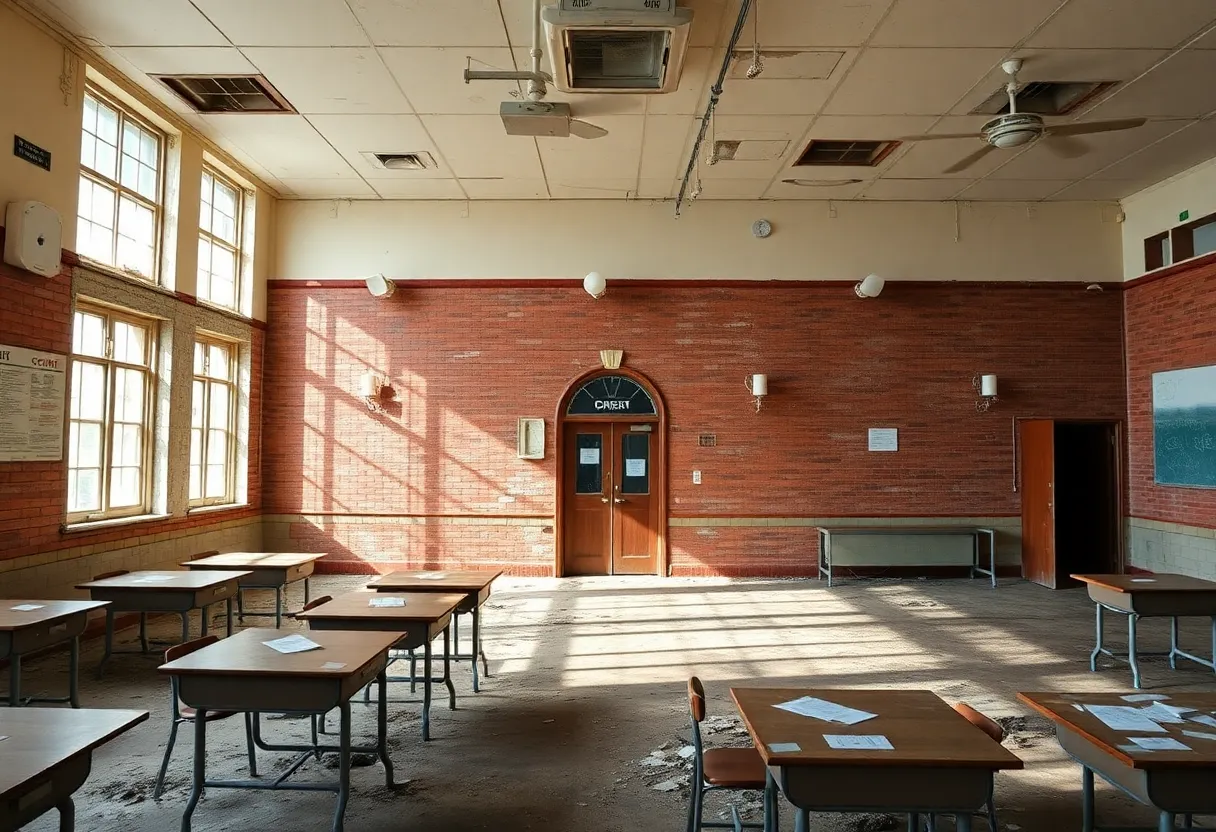News Summary
The Philadelphia School District is the first in the U.S. to face criminal charges under the Asbestos Hazard Emergency Response Act after major oversight failures.
The School District of Philadelphia Faces Unprecedented Criminal Charges for Asbestos Violations
In a landmark case that is sending shockwaves through the education sector, the School District of Philadelphia has become the first school district in the United States to face criminal charges under the Asbestos Hazard Emergency Response Act (AHERA). This unprecedented move comes after a meticulous five-year investigation conducted by federal authorities, including the Environmental Protection Agency (EPA) and the Department of Justice (DOJ).
Criminal Charges Laid Bare
On June 26, 2025, the U.S. Attorney’s Office filed charges against the school district, marking a critical turning point in the battle against environmental violations linked to asbestos. Previously, asbestos had largely been viewed as a historical concern, but the investigation illuminated significant oversights in the district’s management of this cancer-causing substance, which remains present in a staggering approximately 300 out of 339 school buildings within the district.
Failures and Lapses
The crux of the charges centers on the district’s failure to conduct timely inspections and essential remediation of damaged asbestos as stipulated by federal law. Specifically, investigators revealed that the district missed critical three-year inspections at seven schools and inadequately responded to numerous complaints regarding damaged asbestos. Over 31 school buildings were documented to have serious asbestos issues, prompting officials to shutter certain schools due to potential health risks.
Among the most alarming findings was the use of improper remediation methods, including the use of duct tape to temporarily cover damaged asbestos—practices that are not only ineffective but also dangerously inadequate. These findings exposed significant lapses in the district’s asbestos management program that have lasted several years, causing both legal and health concerns.
A Deferred Path Forward
As part of a deferred prosecution agreement (DPA), the district was provided a five-year window to address and rectify its asbestos issues. This agreement stipulates that failure to comply within this timeframe could result in renewed criminal charges. The terms of the DPA include rigorous oversight from federal authorities, making it the highest level of supervision afforded to ensure compliance and safety in schools.
In an effort to enhance transparency regarding asbestos management, the district is mandated to publicly post inspection reports, a move that aims to bolster trust within the community. Enhancements to the district’s budget for environmental management have also taken place, with a dramatic increase from $10.2 million in Fiscal Year 2021 to $55.7 million in Fiscal Year 2025.
Steps to Compliance
The district has also enlisted external expertise to navigate its compliance challenges and has ramped up efforts to conduct inspections across all school buildings twice a year—a significant turnaround from being years behind in required inspections. Moreover, under the DPA, the district is required to provide specialized training on asbestos management to key employees, ensuring a well-informed staff is at the helm of these critical efforts.
The Bigger Picture
This episode at the School District of Philadelphia is a sobering reminder of the persistent dangers of asbestos exposure, as mesothelioma—the terminal cancer linked directly to asbestos—continues to claim around 3,000 lives annually in the U.S. As federal authorities strive to combat this enduring threat, the ripple effects of the district’s failings are being felt across the nation, raising widespread concerns over environmental safety standards in educational institutions.
The historical use of asbestos peaked during the construction boom from the 1930s to the 1970s, long before its devastating health risks became widely recognized. As the EPA halted all domestic asbestos mining in 2002, the U.S. has since turned to importing the substance, creating further complications in health and safety. The legal actions against producers historically associated with asbestos exposure only strengthen the narrative of negligence surrounding this hazardous material.
As the School District of Philadelphia embarks on a mission to rectify its asbestos management failures, it has publicly acknowledged its responsibility to improve protocols. With increased federal oversight, budget inflations dedicated to environmental management, and a renewed commitment to transparency, there is hope that safer learning environments may finally emerge for the district’s students.
Deeper Dive: News & Info About This Topic
HERE Resources
Chrysotile Asbestos Ban Faces Re-examination Under EPA
The Importance of Early Screening for High-Risk Groups
Family Seeks Justice After Tragic Mesothelioma Diagnosis
Major Changes Ahead in Surry County Schools: Retirements and Infrastructure Remediation
Violation Alert: Patten Town Faces Consequences Over Asbestos Removal Blunder
The Future of Asbestos: A Revolutionary Decarbonization Project in Quebec
The Hidden Cost of Service: Asbestos Exposure on the USS Higbee
Revolutionary Breakthrough: Gene Changes Linked to Asbestos-Induced Mesothelioma Uncovered
Asbestos and Lead Cleanup Underway at Great Falls National Park
Trumbull Center Asbestos Update: Community Concerns Alleviated



















